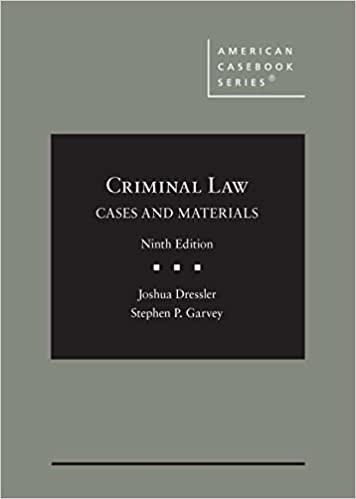Please answer this question in as much detail and explanation as possible.
Please use the images below as a guide as well as the reference link provided below.
Reference Link: https://law.lis.virginia.gov/vacode/title19.2/chapter15/section19.2-264.4/
Code of Virginia - Aggravating and Mitigating Factors: 1. Death Eligibility (Aggravating Factors) - $ 19.2-264.2 (Conditions for Imposition of Death Sentence) (one of these factors must be found beyond a reasonable doubt) Future Dangerousness (probability that the defendant would commit criminal acts of violence that would constitute a continuing serious threat to society) OR Vileness (conduct was outrageously or wantonly vile, horrible or inhuman in that it involved torture, depravity of mind or an aggravated battery to the victim) If no aggravating factor, defendant is sentenced to life in prison without the possibility of parole 2. Imposition of Death Sentence on "Death Eligible" Defendants - $ 19.2-264.4 (Sentencing | Proceeding) a. Mitigating Circumstances - $ 19.2-264.4(B) (non-exclusive list) Lack of significant history or prior criminal activity . Offense committed while defendant under influence of extreme mental or emotional disturbance . Victim was participant in defendant's conduct or consented to act . Defendant's ability to appreciate criminality of actions significantly impaired at time of offense Defendant's age at time of commission of crime "Subaverage intellectual functioning" (NOT mental retardation)Elude of Vigginia ISLE264.4. Sentence proceeding. A. Upon a nding that the defendant is guilty of an o'ense which may be punishable by death, a proceeding shall be held which shall be limited to a determination as to whether the defendant shall be sentenced to death or life imprisonment. Upon request of the defendant, a jury shall be mstructed that for all Class 1 felony offenses committed after January I, 1995, a defendant shall not be eligible for parole if sentenced to imprisonment for life. In case of trial by jury, where a sentence of death is not recommended, the defendant shall be sentenced to imprisonment for life. A]- In any proceeding conducted pursuant to this section, the court shall permit the victim, as dened in 19-2-11.0] upon the motion of the attorney for the Commonwealth, and with the consent of the victim, to testi' in the presence of the accused regarding the impact of the offense upon the victim. The court shall limit the victim's testimony to the factors set forth in clauses (i) through (vi) of subsectionA of 192299. 1. B. In cases of trial by jury evidence may be presented as to any matter which the court deems relevant to sentence, except that reports under the provisions of 192-299 or under any rule of court, shall not be admitted into evidence. Evidence which may be admissible, subject to the rules of evidence governing admissibility, may include the circumstances surrounding the offense, the history and background of the defendant, and any other facts in mitigation of the oense- Facts in mitigation may include, but shall not be limited to, the following: {i} the defendant has no signicant history of prior criminal activity, (ii) the capital felony was committed while the defendant was under the inuence of extreme mental or emotional disturbance, (iii) the victim was a participant in the defendant's conduct or consented to the act, (iv) at the time of the commission of the capital felony, the capacity of the defendant to appreciate the criminality of his conduct or to conform his conduct to the requirements of law was signicantly impaired, (v) the age of the defendant at the time of the commission of the capital oense, or {vi} even if IRE26431.1 is inapplicable as a bar to the death penalty, the subaverage intellectual functioning of the defendant. C. The penalty of death shall not be imposed unless the Commonwealth shall prove beyond a reasonable doubt that there is a probability based upon evidence of the prior history of the defendant or of the circumstances surrounding the commission of the offense of which he is accused that he would commit criminal acts of violence that would constitute a continuing serious threat to society, or that his conduct in committing the offense was outrageously or wantonly vile, horrible or inhuman, in that it involved torture, depravity of mind or aggravated battery to the victim. D- In the event the jury cannot agree as to the penalty, the court shall dismiss the jury. and impose a sentence of imprisonment for life








